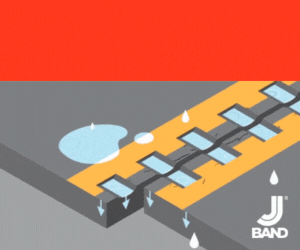
“Do you have the time?”
That’s a familiar question that we’ve all heard at some point in our work lives. The question isn?t if we have time, it is how we use the time that we have.
In the lab, time is very valuable. No technician or QC/QA manager wants to spend what time is available in the lab running tests that either don’t give an indication of performance or take too long to perform compared to other alternatives.
Since agencies first began using polymer-modified asphalt binders, they have used a variety of tests to determine if a modified asphalt binder had sufficient elastomeric properties. Despite the transition to a more performance-related asphalt binder specification — the PG system — many of these tests still are used by agencies to ensure that their modified asphalt binder has been produced with an elastomeric modifier.
The elastic recovery, force ductility and toughness & tenacity tests are all still used by different agencies to characterize the elastomeric modification of an asphalt binder. Although each test has different positives, they each share a common negative — they take valuable lab time to run.
What’s the solution to the time crunch?
Consider using the MSCR test (AASHTO TP70) to evaluate the delayed elastic response of modified asphalt binders. The MSCR test procedure uses a 1-second creep load at a specified shear stress followed by a 9-second recovery period to complete one cycle.
The MSCR recovery value can be calculated by determining the ratio of the recovered strain at the end of the cycle to the peak applied strain. A typical MSCR test consists of ten cycles at each of two stress levels — a total of 200 seconds of testing time (about three and a half minutes.)
Even adding in time to load and trim the sample and allow it to reach thermal equilibrium, the total preparation and testing time is less than 30 minutes. Contrast that with the several hours required to run the elastic recovery or force ductility procedures and the lab can realize significant time savings.
With the MSCR recovery providing similar information as other, more time-consuming tests like elastic recovery, it seems rational that the MSCR test could serve as a replacement — saving testing time for both the user and supplier.
In the words of Carl Sandburg:
“Time is the coin of your life. It is the only coin you have, and only you can determine how it will be spent. Be careful lest you let other people spend it for you.”













